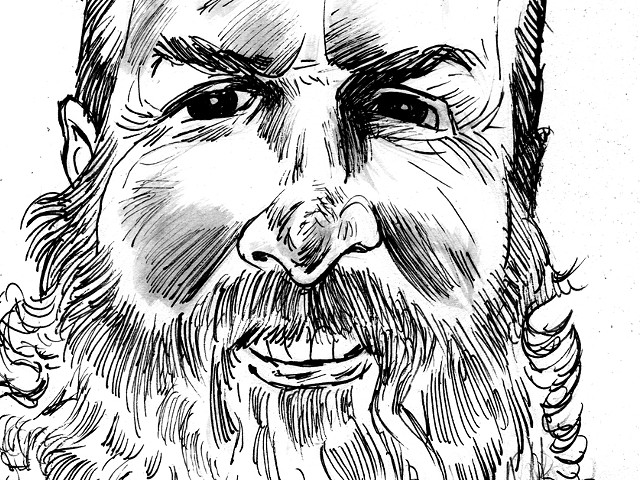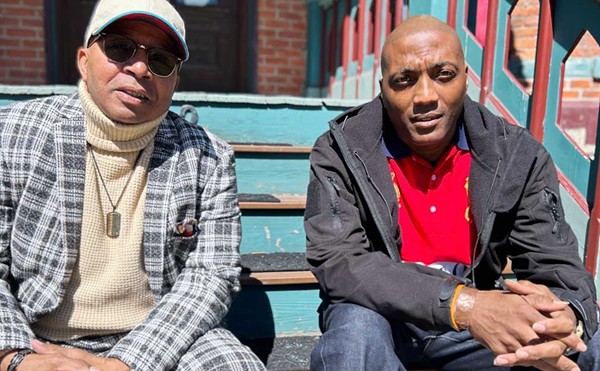By the time of his death, Vladimir Voinovich was never mentioned without some variation of his title: satirist. Sometimes it was "famed satirist" or even "master satirist." But the Russian writer, who spent his life alternatively fleeing and critiquing his homeland's leaders, told interviewers that he found the label exasperating. He saw himself as a realist.
"What I describe here is only what I saw with my own eyes," Voinovich writes in the introduction of his dystopian epic Moscow 2042.
Of course the book, described by one reviewer as "the Soviet Catch-22," is a ridiculous piece of fiction. The novel follows Russian dissident writer Vitaly Karsev, who essentially functions as Voinovich's stand-in as he bumbles his way into a time-traveling expedition 60 years into the future. He arrives in a Moscow governed as a city-state by "pure Communism," a system wherein bathrooms are under the jurisdiction of the "Bureau of Natural Functions" and newspapers are printed directly on toilet paper.
Above it all is the generalissimo — a strongman keeping the population under control on the combined strength of religious dogma, a ludicrous cult of personality, and the secret police.
The book was a hit in the West when it was published in 1987 (it was banned in Soviet Russia). Decades later, contemporary scholars noted that the novel's dystopian merger of the KGB, the Communist state, and the church foreshadowed the rise of Vladimir Putin, creating a reality with odd parallels to the fictional Moscow of 2042.
Voinovich noticed the similarity, too. "I think it's pretty close," he admitted to The Daily Beast in 2015.
By then, he had already lived many disparate roles: Born to a Jewish mother and journalist father, he served as a loyal Soviet soldier in World War II, a wannabe poet under Stalin, a dissident writer under Khrushchev, and then a satirist in exile in West Germany, where he penned Moscow 2042. Welcomed home during the presidency of Mikhail Gorbachev, he finally attained acceptance in his own homeland.
And then, like an absurdist plot in one of Voinovich's own works, Putin took control. Once again, Voinovich became an outspoken dissident, as the author rebuked the regime's repression of the media and political opponents, as well as the war in Chechnya.
Indeed, Voinovich managed to live long enough to become his own sort of time traveler. In his final years, he witnessed a backsliding Russia controlled by bureaucrats who projected breathtaking confidence in their leader, even as the country's hard-won freedoms unraveled under that leader's fist.
"Next time, I'll write a utopia," Voinovich joked to an American crowd a few years ago. "People keep saying that all the bad things I write come true, so I'm going to write something good."
Instead, he suffered a heart attack. The master satirist died on July 28. He left his prophetic gifts for the next generation of dissidents and trouble-makers — and stories of comic authoritarianism that, with each passing headline, seem less and less fantastical.
From "The people who died, 2018."
Next: Mary Carlisle, "Baby starlet" who made more than 60 films in a decade.
Previous: Mike Arnold, owner-operator of St. Louis' Gus Gus Fun Bus.





